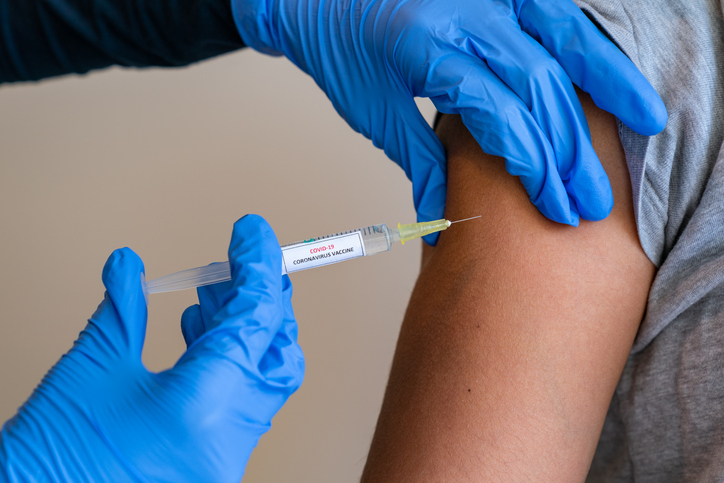California Gov. Gavin Newsom (D) announced on October 1 that he will require all schoolchildren to be vaccinated against COVID-19, marking the first such mandate in a U.S. state.
The mandate will be phased in during the first academic term after the Food and Drug Administration (FDA) has granted full approval of a coronavirus vaccine for people under age 16. With the FDA expected to greenlight such shots in the coming months, state officials believe the mandate could become effective as early as January 2022 and probably no later than July 2022. The mandate applies to children in grades 7-12 and covers both public and private schools.
“Our schools already require vaccines for measles, mumps, and more,” Newsom wrote on Twitter. “Why? Because vaccines work. This is about keeping our kids safe & healthy.”
Dr. Anthony Fauci, President Biden’s chief medical advisor, voiced support for Newsom’s policy. “People need to realize that having a vaccine requirement for schools is not a new, novel thing that is very peculiar or specific to COVID-19,” he told CBS’s “Face the Nation” (Oct. 3). “We’ve been doing this for decades.”
California’s Strict Vaccine Requirements
Even before the COVID-19 outbreak, California had some of the nation’s strictest vaccine requirements. It is one of only a handful of states that does not allow parents the option of keeping their children from being inoculated for religious reasons or “personal beliefs,” setting up a potential clash between parents wary of COVID-19 vaccines and California school officials. The state also investigates physicians who write beyond a certain number of medical exemptions for children.
California already has a relatively high rate of vaccination. Currently, 63.5 percent of all students in the state ages 12 to 17 have received at least one dose of the COVID-19 vaccine, compared with 84 percent of all eligible Californians, the Wall Street Journal, citing Newsom, reported (Oct. 2-3). The mandate for schoolchildren comes in the wake of the state’s announcement in August that all public and private school teachers and staff will be required to show proof of vaccination or undergo weekly testing for COVID-19.
The Pfizer-Bio-N-Tech vaccine appears to have a leg up on its competitors in taking advantage of the California mandate. It has received emergency-use authorization (EUA) from the FDA for children ages 12-15, in addition to having already received full approval for those 16 and older. Pfizer is conducting late-stage studies on the vaccine’s effect on children ages 5 to 11 and is expected to seek an EUA from the FDA in October.
Alex Berenson, who has written extensively on the subject of vaccines and the coronavirus, cautions in an email that the mRNA vaccines “protect for only a few months at most; other childhood vaccines, with the exception of the flu vaccine, protect for decades or a lifetime.”
“This difference is especially important for children, who might have to take boosters for decades (or at least until we regain our sanity if we ever do),” he says. Berenson adds that the COVID-19 vaccines “have moderate to serious short-term side effects for an enormous number of people who receive them, far more than the flu vaccine or other common childhood vaccines.”
Risk-Benefit Profile
“They also cause medically significant heart inflammation in as many as 1 in 3,000 to 1 in 5,000 teenage boys who receive them,” he points out. “Given that Covid is little more than a cold for most healthy children and teens, the vaccines have a risk-benefit profile that is unacceptable for teenagers, much less children.”
“The shortest time to market for a vaccine was the mumps vaccine – and that took five years,” notes Marilyn M. Singleton, M.D., JD, a board-certified anesthesiologist in California. “While vaccines play an important role in preventing disease, all medications, and drugs, including vaccines, carry some risks.”
“Such risk must be weighed against the benefit,” she tells HCN. Children’s developing bodies likely may face more risk from an experimental vaccine that has not gone through long-term testing than from contracting the SARS-CoV-2 virus. Consistently, authorities classify childhood death from COVID-19 as ‘rare.’ The underlying conditions of these unfortunate children are not reported.”
Bonner R. Cohen, Ph.D., (bcohen@nationalcenter.org) is a senior fellow at the National Center for Public Policy Research.
